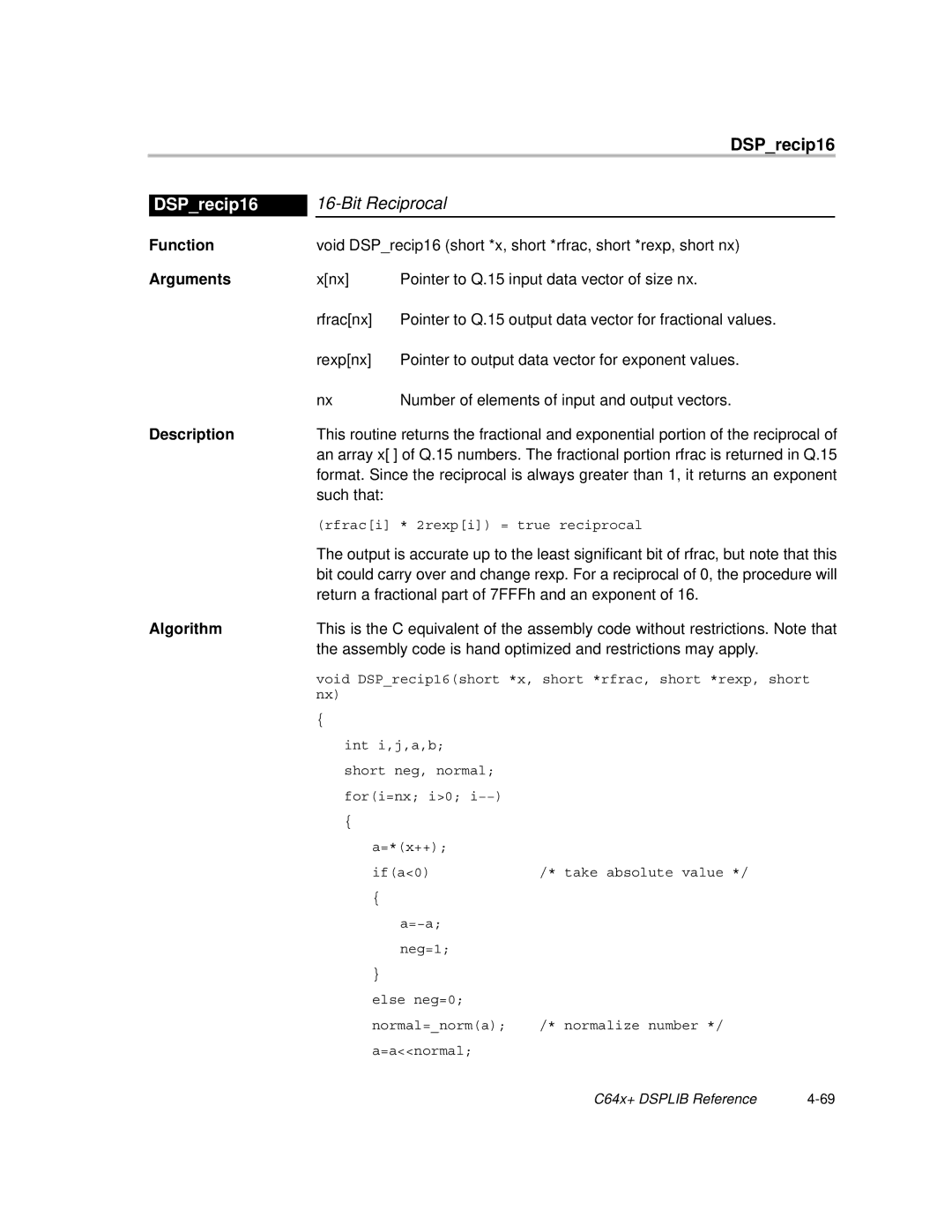|
|
| DSP_recip16 | |
|
| |||
DSP_recip16 | ||||
Function |
| void DSP_recip16 (short *x, short *rfrac, short *rexp, short nx) |
| |
Arguments |
| x[nx] | Pointer to Q.15 input data vector of size nx. | |
|
| rfrac[nx] | Pointer to Q.15 output data vector for fractional values. | |
|
| rexp[nx] | Pointer to output data vector for exponent values. | |
|
| nx | Number of elements of input and output vectors. | |
Description |
| This routine returns the fractional and exponential portion of the reciprocal of | ||
|
| an array x[ ] of Q.15 numbers. The fractional portion rfrac is returned in Q.15 | ||
|
| format. Since the reciprocal is always greater than 1, it returns an exponent | ||
|
| such that: |
|
|
|
| (rfrac[i] * 2rexp[i]) = true reciprocal | ||
|
| The output is accurate up to the least significant bit of rfrac, but note that this | ||
|
| bit could carry over and change rexp. For a reciprocal of 0, the procedure will | ||
|
| return a fractional part of 7FFFh and an exponent of 16. | ||
Algorithm |
| This is the C equivalent of the assembly code without restrictions. Note that | ||
|
| the assembly code is hand optimized and restrictions may apply. | ||
void DSP_recip16(short *x, short *rfrac, short *rexp, short nx)
{
int i,j,a,b; short neg, normal; for(i=nx; i>0; i−−)
{
a=*(x++);
if(a<0)/* take absolute value */
{
a=−a;
neg=1;
}
else neg=0;
normal=_norm(a); /* normalize number */ a=a<<normal;
C64x+ DSPLIB Reference |
